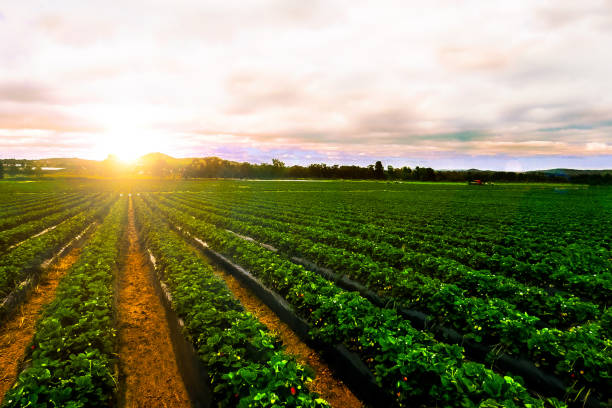The Divided ECOWAS on ICTS and Shocks Alleviation in Agriculture and Animal Resources Exhibition
By Abdul Rahman Bangura-

Photo Credit: istock
NEW AFRICA BUSINESS NEWS (NABN) Freetown, Sierra Leone- National and International members were brought on to take part in dialogues at the inaugural symposium on the central theme of “African agriculture in the face of internal and external shocks. Structural cultivations to improve agricultural sectors and guarantee food sovereignty”.
Thereupon delineating the varied stupefaction facing African populations, the Director General of the International Institute of Tropical Agriculture (IITA), Dr. Siméon Ehui, concentrated on the consequence of climate change, which is making African agriculture more delicate.
He called on stakeholders and decision-makers to prioritize the usage of drought-tolerant agricultural technologies adapted to situations of climate variability.
The Regional Director of the International Centre for Research in Agroforestry (ICRAF/CIFOR), Dr. Kouamé Christophe, suggested agroforestry as a solution to shocks and to make African agriculture sustainable. Agroforestry implies integrating trees with crops or livestock in the same agricultural production system. The trees, which may be of forest or fruit species, can be found right on the farm.
The FAO Resident Representative in Côte d’Ivoire, Dr. Attaher Maiga, emphasized the need to bolster partnerships between institutions to claim experience and pool resources. The lasting solution to shocks is solidarity between nations and institutions. ECOWAS, through
its Director of Agriculture and Rural Development, Alain SY Traore shared the experience of the ECOWAS response mechanism to internal and external shocks. He began by outlining the main endogenous and exogenous shocks faced by the West African subregion since 1970, before presenting the Regional Food Security Reserve, which enables regional solidarity to be brought into play in the event of a major food crisis, with support in the form of physical stocks and financial support. “The Regional Reserve is the third line of defense in dissuading and managing food crises. It supplements local stocks (the first line of defense at village and community level) and national food security stocks (the second line of defense) held by governments,” stressed the ECOWAS representative.
The Regional Food Security Reserve (RFSR) in West Africa was created by the Heads of State and Government of ECOWAS Member States in February 2013, by Supplementary Act to the revised ECOWAS Treaty (AS/2/02/13).
“Technology and innovation in agriculture: How can new technologies be used to increase agricultural productivity and improve value chains? This was the theme of the second conference, during which the ECOWAS experience was shared. Dr. Kémo Badji, an expert in fruit fly surveillance and control systems at ECOWAS, mapped out the various ICT-based information systems developed in the sub-region. He also stressed that ECOWAS has made the digitization of agriculture a priority to prevent or mitigate food shocks.
For New Africa Business News (NABN) Abdul Rahman Bangura Reports, Africa Correspondent
